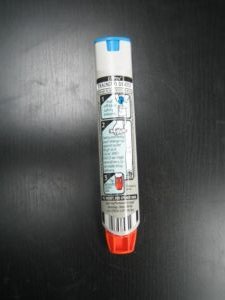It is a known fact that raisins have been a natural sweet treat enjoyed by many but might not be enjoyed if an individual ends up with an allergic reaction after eating the dried fruit whether as a snack or dessert. Raisins are made out of dried grapes and not considered as common food allergens, although any food can easily initiate an allergic reaction. It is also possible that if the individual is highly sensitive to mold, he/she can develop an allergic reaction after consuming raisins. Scheduling an appointment with a doctor in order is a must in order to determine the cause of the symptoms.
What is raisin allergy?
A raisin allergy can occur when immune system mistakenly identifies the proteins in raisin as dangerous. The immune system is responsible for keeping the body safe from infectious organisms such as bacteria, viruses and toxins. Once the immune system erroneously identifies the proteins in raisins as harmful, the antibodies are produced to destroy the proteins. The immunoglobulin E is the specific antibody generated by the body to fight off the food allergen. Take note that these antibodies trigger a chemical reaction all over the body that causes the symptoms of an allergic reaction.
Symptoms of raisin allergy

The symptoms of raisin allergy are due to the increased level of histamine in the soft bodily tissues. The IgE antibodies connect with the white blood cells situated in the soft bodily tissue which generate histamine to guard the body.
Histamine causes the blood vessels to dilate, constrict the lungs and increase the production of mucus. Take note that these changes in the body can lead to nasal congestion, runny nose, difficulty breathing, watery eyes, wheezing, chest tightness, coughing, diarrhea, nausea, vomiting, skin rashes, stomach pain, hives, eczema, rapid heart rate and lightheadedness.
Important considerations to bear in mind
Allergies to mold are common but usually categorized with hay fever or an air-based allergy. It is important to note that mold can develop in different places and found on some types of dried fruit, including raisins. If an individual has a mold allergy, it is best to consult a doctor regarding an elimination diet. In case he/she is allergic to mold, there is likelihood that grapes can be eaten, but not raisins due to the possible presence of mold in the raisins.
Treatment for raisin allergy
The moment the exact cause of the allergy is determined, the doctor will advise the individual to avoid all recognized allergens. If the individual accidentally consumes raisins or mold spores, the first aid measure is to provide over-the-counter antihistamines in order to reduce the symptoms. Other medications that can also be given include decongestants, pain relievers and topical steroid creams. As for severe cases that results to life-threatening symptoms, it would require an injection of epinephrine in order to counteract the symptoms.
